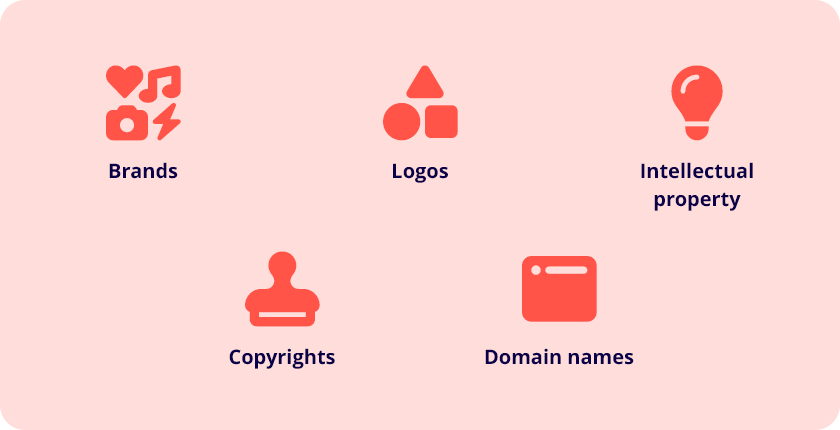GLOSSARY
What are intangible assets?
What are intangible assets? An intangible asset is an asset that is not physical in nature. Intangible assets can include property such as:

- brands
- logos
- intellectual property
- copyrights
- domain names.
Since the asset cannot be manipulated or easily quantified, determining the value of an intangible asset can be difficult and often determined by market forces and various evaluations of profit and cost.
Despite being non-physical, a business’s intangible assets can certainly hold value. Take McDonald’s for example. The McDonald’s brand, logos, and domain names would certainly be of high value were they to be sold due to global brand recognition and goodwill. However, determining the exact value is not as simple as when dealing with a tangible asset.
Intangible vs. tangible assets
While an intangible asset is not physical in nature, a tangible asset is. Tangible assets can include property such as:
- cash
- real estate
- vehicles
- equipment
- inventory
- furniture
Intangible assets and accounting
Unlike a tangible asset, an intangible asset is not recorded as an asset for accounting or bookkeeping purposes. An intangible asset will not appear on a business’s balance sheet or have a book value.
See related terms
What are fixed assets?
What is gross profit?
What is a ledger?
Additional resources
Disclaimer
This glossary is intended for small business owners and contains definitions suited to their needs. For more comprehensive explanations, we recommend consulting an accounting or bookkeeping professional. Reckon does not offer accounting, tax, business, or legal advice.
Try Reckon One now for free!
30 days free trial. Cancel anytime.

